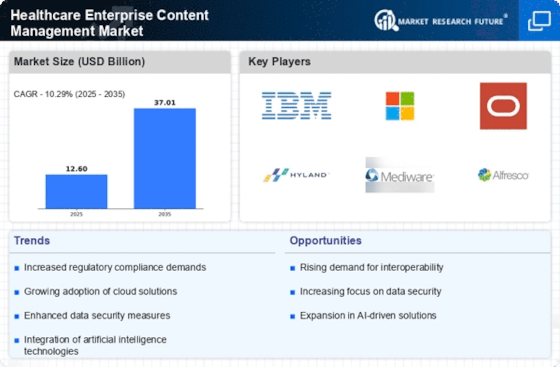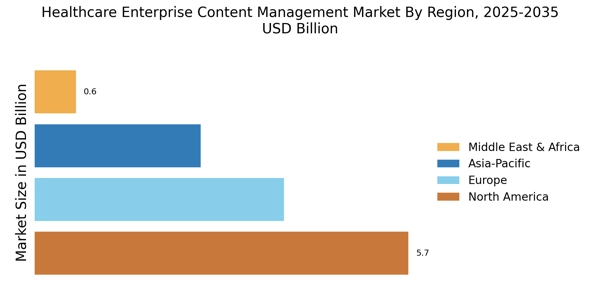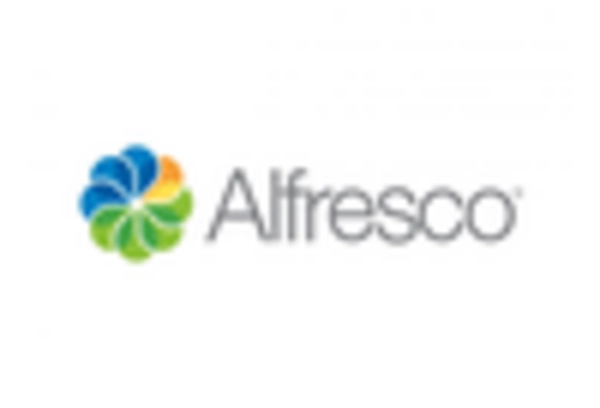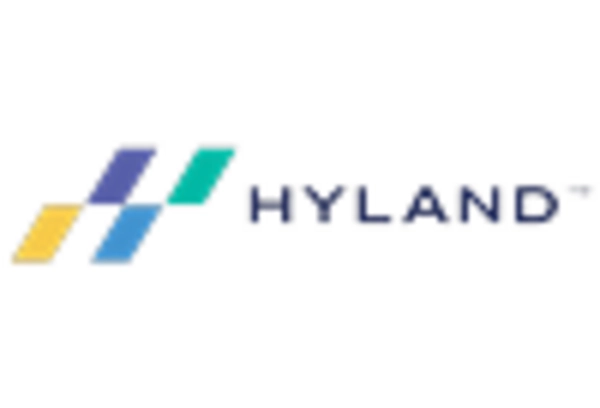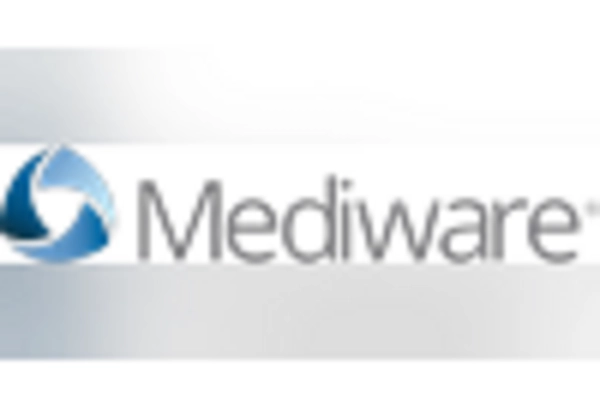Adoption of Telehealth Services
The adoption of telehealth services is significantly impacting the Healthcare Enterprise Content Management Market. As healthcare providers increasingly offer remote consultations and services, the need for efficient content management systems that support telehealth operations is becoming evident. These systems must manage a variety of content types, including patient records, consent forms, and communication logs. The market is projected to grow as organizations seek to integrate telehealth capabilities with existing content management solutions, ensuring seamless access to information for both providers and patients. This trend suggests a shift towards more flexible and responsive healthcare delivery models.
Regulatory Compliance and Standards
Regulatory compliance remains a driving force within the Healthcare Enterprise Content Management Market. Healthcare organizations are mandated to adhere to stringent regulations such as HIPAA and GDPR, which govern the handling of sensitive patient data. Non-compliance can result in severe penalties, thus prompting healthcare providers to invest in comprehensive content management solutions that ensure adherence to these regulations. The market is projected to grow as organizations seek to implement systems that not only manage content but also provide audit trails and reporting capabilities to demonstrate compliance. This trend indicates a growing recognition of the importance of regulatory adherence in maintaining operational integrity.
Growing Importance of Data Analytics
Data analytics is emerging as a crucial driver in the Healthcare Enterprise Content Management Market. Organizations are recognizing the value of leveraging data to inform decision-making and improve patient outcomes. Content management systems that incorporate analytics capabilities allow healthcare providers to gain insights from vast amounts of data, enhancing operational efficiency and care quality. The market is likely to expand as more organizations seek to implement solutions that not only manage content but also provide analytical tools to interpret data trends. This growing emphasis on data-driven decision-making indicates a transformative shift in how healthcare organizations operate.
Increased Focus on Patient Engagement
The Healthcare Enterprise Content Management Market is increasingly influenced by the focus on patient engagement. As healthcare providers recognize the importance of involving patients in their care processes, the demand for content management solutions that facilitate communication and information sharing is on the rise. Systems that enable easy access to medical records, treatment plans, and educational materials are becoming essential. This shift is supported by data indicating that engaged patients are more likely to adhere to treatment protocols, leading to improved health outcomes. Consequently, the market is likely to expand as organizations seek to enhance patient engagement through effective content management.
Rising Demand for Efficient Document Management
The Healthcare Enterprise Content Management Market is experiencing a notable increase in demand for efficient document management solutions. As healthcare organizations strive to enhance operational efficiency, the need for streamlined document workflows becomes paramount. According to recent data, healthcare providers are estimated to manage over 30 billion documents annually, which underscores the necessity for robust content management systems. These systems facilitate the organization, retrieval, and sharing of critical patient information, thereby improving care delivery. Furthermore, the integration of advanced technologies within these systems is likely to enhance their capabilities, making them indispensable in the healthcare sector.


